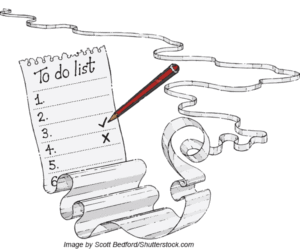My last post brought me back to my experience as a hospital chaplain when I studied family system theory as part of my pastoral care education program. It also got me thinking about an important dynamic that has informed my behavior ever since.
As noted previously, I’m a fan of Dr. Ronald Richardson’s book Family Ties That Bind. A brief section on overfunctioning and underfunctioning hit home for me. He defines these terms as follows:
- The overfunctioner tends to feel that there is no option but to take on the responsibility and do the work required.
- The underfunctioner may feel incapable and so allow – or even expect – the other to be responsible, saying: “I can’t” or “You won’t let me.”
In healthy relationships, we take turns being the overfunctioner and underfunctioner… or simply function independently and cohesively without over or under doing it. But in unhealthy relationships, we can get stuck playing one role or the other. We may even allow that way of being to spill over into other relationships.
I’ve spent most of my life being an overfunctioner. I learned this behavior as a small child within the context of my family system. Part of it came from a strong family work ethic. Part of it had to do with gaining approval for achievement, which often entailed doing far more than my share of group efforts to ensure our collective success. Part of it had to do with a sense of responsibility for my mother’s emotional well-being (which she encouraged). Over the years, overfunctioning became a deeply engrained pattern.
 Of course, the world rewards overfunctioners. We’re praised for being strong, hard-working, responsible, get-it-done team players. We get promotions on the job because the higher-ups realize that we’ll make sure that our assignments and those of our subordinates will be completed… even if doing so renders us bone-weary. And we may feel a sense of pride in the skills that we develop and the work that we achieve along the way. But there’s a cost…
Of course, the world rewards overfunctioners. We’re praised for being strong, hard-working, responsible, get-it-done team players. We get promotions on the job because the higher-ups realize that we’ll make sure that our assignments and those of our subordinates will be completed… even if doing so renders us bone-weary. And we may feel a sense of pride in the skills that we develop and the work that we achieve along the way. But there’s a cost…
When we overfunction chronically, we hold other people small. We’re sending out the implicit signal that we don’t find them capable of doing their work. We’re not giving them the opportunity to step up and grow. And we’re creating a dependency that we may not be able to sustain. They may buy into this bargain and, in fact, enjoy being coddled. But in reality, we’re not doing them any favors long term.
Overfunctioning introduces tension in a relationship. No matter how noble our intentions might be at the onset, we may resent doing all the extra work and get irritable with the folks who we deem underfunctioners. And they may grow resentful of us for creating a dependency… even if they’ve agreed to it implicitly or explicitly. Furthermore, by failing to bring forth the richness of our compatriot’s wisdom and talents, we miss out on a level of greatness that accrues to a genuinely collaborative effort.
Overfunctioners can fall prey to pridefulness. We can feel as though our ways are the only ways. We may see ourselves as indispensable when, in reality, the world will continue to spin on its axis whether we participate in its daily rotations or not. Beyond the arrogance of it all, we can run ourselves into the ground keeping up with a needlessly hectic and overstuffed workload.
I’m hardest hit on my overfunctioning tendencies in volunteer roles. In most not-for-profit organizations, there are a handful of people who do a lion’s share of the work and a whole lot of folks who enjoy a free ride. I usually count myself among the lions, especially when I see the burden that the stalwart volunteers bear. However, I am learning to pace myself and do my share (and then some) and let others choose how much they’re willing to contribute. That may mean letting the organization come to terms with how much work it is willing to take on and how many things it is willing to let go undone.
It’s a life-long challenge for me… but I’m working it every day.